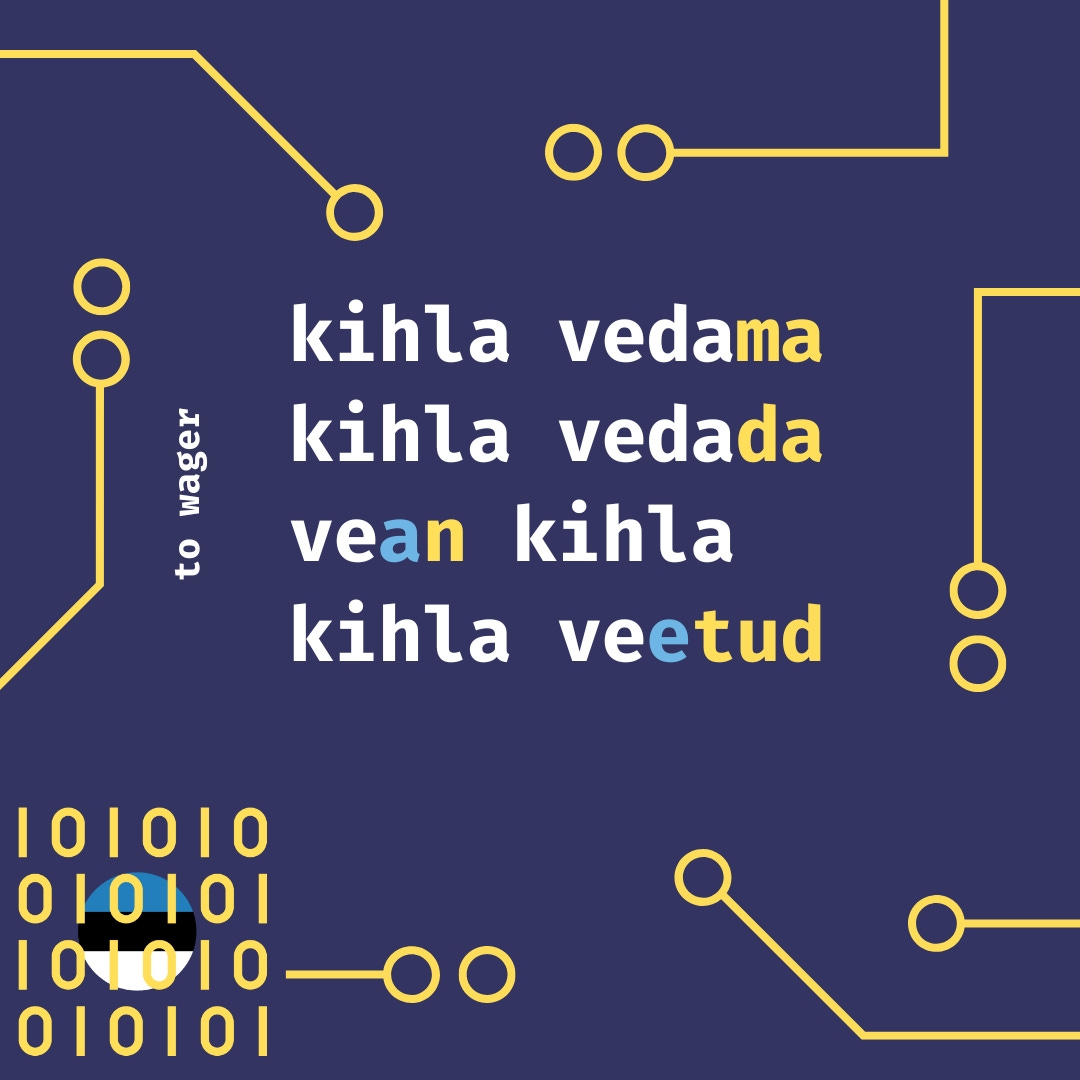Vocab: kihla vedama
to wager
to bet, to wager, to be sure or convinced of something
Building blocks
kihla - comes from the word "kihl," which historically refers to a "pledge", “bet" or “a form of commitment”
vedama - "to pull" or "to lead." In this context it implies making or placing a bet. The action of "leading" or "guiding" is metaphorically applied to the process of wagering, where one person "pulls" the other into an agreement or challenge.
When combined, "kihla" and "vedama" form the compound verb "kihla vedama," which translates to "to make a bet" or "to wager." It conveys the idea of entering into an agreement where both parties stake something on the outcome of a specific event or claim.
In Estonian, "kihla vedama" can also express confidence in a belief or prediction, as making a bet typically suggests that you are quite certain of the outcome.
How to use it
Making a Wager:
Kaks kolleegi vedasid kihla, kumb saab esimesena projektiga valmis.
Translation: Two colleagues placed a bet on who will finish their project first
Being Sure or Convinced of Something:
Võin kihla vedada, et ta jõuab enne meid kohale.
Translation: I bet that he'll arrive before us.
What to remember when using the verb “kihla vedama”:
With whom you make a bet is in the Comitative case (ending -ga)
What you make a bet about is in the Genitive case, and you add the word 'peale' (on or about)
See this in use ⬇️
Examples
Ma vedasin oma sõbraga kihla
Literally: “I made my friend-with wager”
Idiomatically: “I made a wager with my friend”
Ma - Pronoun - Nominative Sg, "I"
vedasin (kihla) - Compound Verb - 1P Past Sg, "made (a wager)"
oma - Pronoun - Genitive Sg, "my"
sõbraga - Noun - Comitative Sg, "friend-with"
(vedama) kihla - Compound verb - 1P Past Sg, "(made) a wager"Vedasin kasti õlle peale kihla, et Eesti võidab olümpial medali
Literally: “I made crate beer on wager that Estonia wins Olympics-on medal”
Idiomatically: “I wagered a crate of beer that Estonia would win a medal at the Olympics”
Vedasin (kihla) - Compound verb - 1P Past Sg, "I made (a wager)"
kasti - Noun - Genitive Sg, "crate"
õlle - Noun - Genitive Sg, "beer"
peale - Adverb - Indeclinable, "on"
(vedasin) kihla - Compound Verb - 1P Past Sg, "(I made) a wager"
et - Conjuction - Indeclinable, "that"
Eesti - Noun - Nominative Sg, "Estonia"
võidab - Verb - 3P Present Sg, "wins"
olümpial - Noun - Adessive Sg, "Olympics-on"
medali - Noun - Genitive Sg, "medal"

